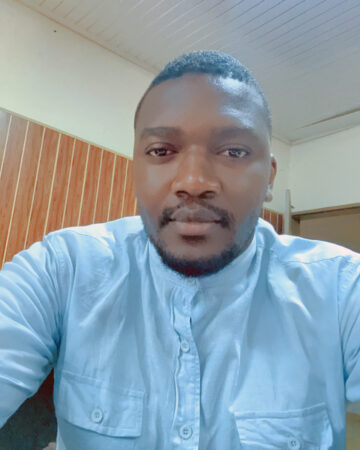
Bernard is a dedicated young researcher and a member of the Cameroon Immunology Society, with a strong background in Biology, Physiology, and Immunology. He possesses excellent communication skills and the ability to work both independently and collaboratively. His expertise lies in adaptive immunity, with a particular focus on placental malaria and schistosomiasis in school-aged children.
Currently, Bernard serves as a Research Assistant at the Unit of Immunobiology and Helminth Infections (IBHI) and is the Laboratory Manager of the Laboratory of Molecular Biology and Biotechnology at the Institute of Medical Research and Medicinal Plants Studies (IMPM), Ministry of Scientific Research and Innovation, Yaoundé, Cameroon. Under the mentorship of Dr. Justin NONO, his research at IBHI Lab focuses on identifying and characterizing host regulators of helminth transmission and morbidity, aiming to develop host-directed therapies for Schistosoma mansoni-infected school-aged children.
Bernard is also pursuing a Ph.D. in Immunology under the supervision of Prof. Rosette MEGNEKOU. His doctoral research investigates circulating T follicular helper (cTfh) cells and their function in relation to placental malaria in women at delivery in Cameroon. This builds on his master degree in Animal Physiology/Immunology (2020), during which he studied the impact of Plasmodium falciparum submicroscopic infection on the expression of anti-VAR2CSA IgG antibodies in women at delivery in a health center in Yaoundé, Cameroon.
Bernard has mastered a variety of immunological techniques, including ELISA, Luminex assays, flow cytometry, and cell culture, as well as molecular techniques such as PCR, RT-qPCR, and RT-LAMP. He is also proficient in statistical analysis, utilizing software such as FlowJo, GraphPad, and R for data interpretation.
Bernard has actively participated in various conferences, symposiums, and workshops, delivering both oral and poster presentations. He has contributed to the scientific community through peer-reviewed publications in high-impact journals and has mentored students, fostering the next generation of researchers in immunology and infectious diseases. His dedication to immunological research and his contributions to the understanding of host-pathogen interactions highlight his potential as a future leader in the field of immunology.